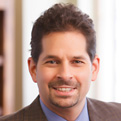Voting Security

Computer science professor Doug Szajda, an expert in computer and systems security and computer networks, can discuss voting security.
Szajda includes voting security as part of the curriculum for his classes, especially in an election year, and he stays on top of trends.
Szajda understands the popularity of electronic voting machines but says that they are susceptible to voting security issues and that must be taken seriously.
“The most crucial thing is that there is a verifiable audit trail,” said Szajda. “Electronic voting has several advantages, including the speed at which votes are counted. The problem is that any system that lacks a paper audit trail cannot guarantee the integrity of the election.”
"If we are going to use a machine, the goals for that machine should include that it has to allow each authorized voter to vote once only and prevent tampering after they cast their ballot," Szajda explains. "Machines must be verifiably trustworthy; must randomize the order in which votes are counted; and must not give voters a paper receipt."
As for paper ballots...
"Paper ballots may seem archaic, but there is a great deal of transparency when conducted appropriately. If there is a box, then both parties have an opportunity to see ballots go in and out, and that enhances the integrity of the election," he says.
Voting machines run software, which Szajda says could be tampered with. "A code that skims even a small percentage of votes from one candidate to another could easily change the result of an election," he says.
Contact Sunni Brown (sbrown5@richmond.edu), director of media and public relations, to connect with Szajda.